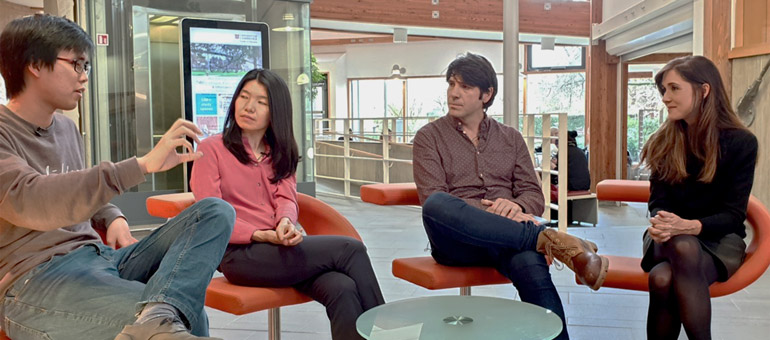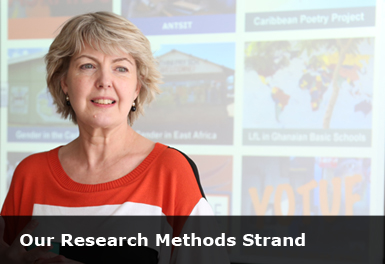
One of the most challenging yet rewarding journeys I have ever embarked onKey Facts Route Co-ordinator: Riikka Hofmann and Sonia Ilie Full-time enrolled 2023-24: 9 Open to: Full-time MPhil and Part-time MPhil Part-time enrolled 2023-24: 14 Full-time deadline: 25/02/25 Part-time deadline: 13/05/25 Application written task
Overview of the course
This route provides a comprehensive overview of critical issues in education policy leadership and improvement through the in-depth study of theoretical perspectives and their applications to educational contexts and settings. The course combines UK and international perspectives and engages with evidence from a range of national and educational contexts. The teaching team draw on their research expertise and encourage course participants to share their experiences and reflect on the course content relating new knowledge and insights to their own contexts.
This route focuses on critical issues in education in the context of institutional and system improvement and with reference to practice policy and theory. The course engages students in theoretical debates around each of the key concepts of policy leadership and improvement problematising these and considering a range of perspectives. The course encourages students to engage with empirical evidence from a range of national contexts around these key topics and related issues including accountability in education professional learning leading for change evidence-based practices amongst others.
Why choose us?
By the end of the Educational Policy Leadership and Improvement course students are expected to have:
- a comprehensive understanding of research techniques and a thorough knowledge of the literature applicable to their specific educational domain
- demonstrated originality in the application of knowledge together with a practical understanding of how research and enquiry are used to create and interpret knowledge in their specific educational domain
- shown abilities in the critical evaluation of current research and research techniques and methodologies
- demonstrated self-direction and originality in identifying addressing and solving problems and acted autonomously in the planning and implementation of research.
What does this course offer?
The educational aims of the route are to:
- examine the theoretical frameworks used in the study of education specifically around concepts of policy leadership and improvement;
- provide training in research methods appropriate to education and the study of educational change;
- advance the capacity of students for research-informed professional reflection and judgment;
- cater for a range of specialists interested within the field of education or one of its constituent disciplines.
The course is of relevance and interest to individuals with an interest in theoretical empirical and practical issues around policy leadership and improvement in education. This may include teachers and educators in a range of education settings middle and senior education leaders heads/principals specialist and system leaders governors and administrators. The course encourages all participants to reflect on their wide range of experiences.
 How is the course organised?
How is the course organised?
The route content is structured in interrelated modules. These may include:
- Educational policy and policy-making
- Approaches to educational improvement
- Educational effectiveness and evidence-based practice
- Education Evaluation
- Professional learning and development
- Teachers/Educators as agents of change
- Critical approaches to educational leadership
- Leading professional and organisational change
Modules will be taught in Michaelmas and Lent terms. In addition you will have regular meetings with your supervisor throughout the year.
The full-time course is assessed through two essays submitted in Michaelmas and Lent terms and a dissertation submitted in July.
 Research Method Strand
Research Method Strand
Alongside these modules you will benefit from 32 hours of Research Methods teaching.
This is taught across all thematic Masters within the Faculty of Education allowing you to interact with others on different courses.
It covers a broad range of social science research methods and is essential for Masters level understanding and critical engagement with the research literature in many specialist areas and in education more generally.
Through this strand you will acquire the skills necessary for designing conducting analysing interpreting and reporting a research study for your Dissertation.
Detailed Research Methods information.
 Where do our students go?
Where do our students go?
Our graduates are the future leaders in their field. They have a wide choice of career options including:
- further PhD study
- doctoral training in educational or developmental psychology
- work in schools
- charities and government departments
- think tanks and universities
